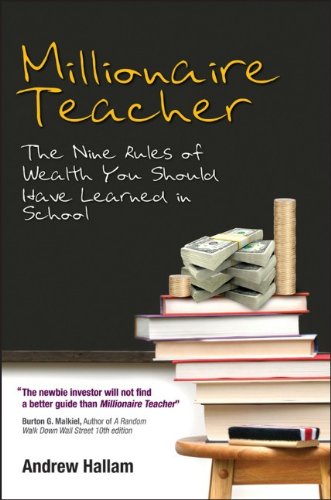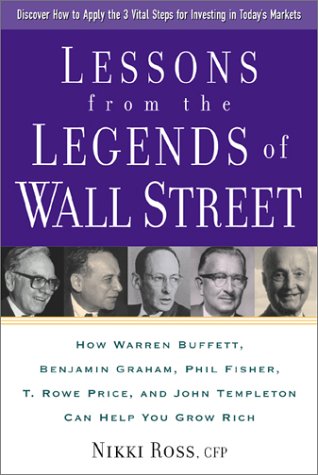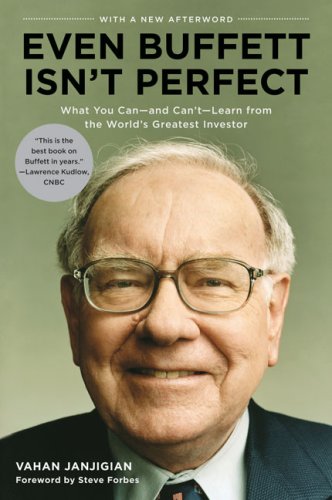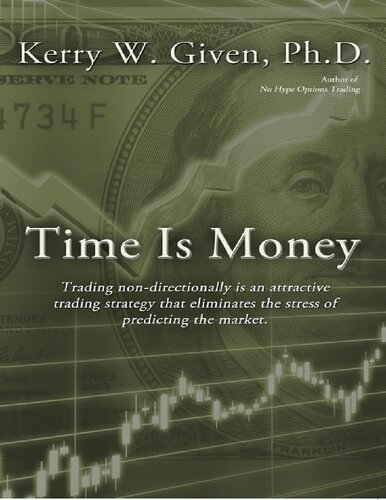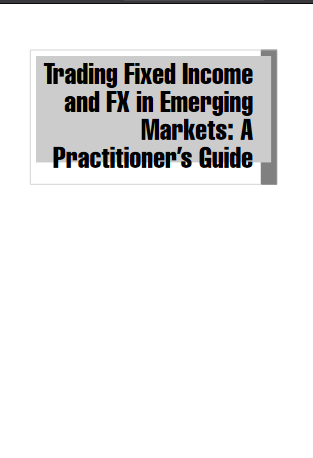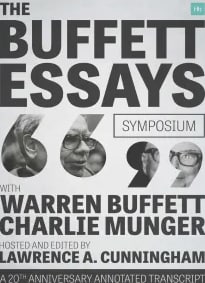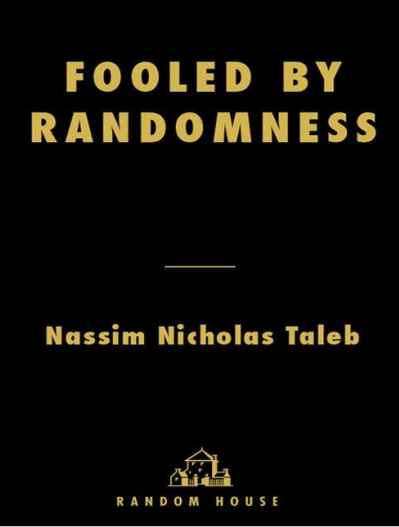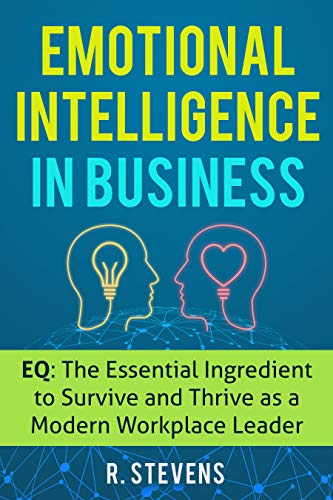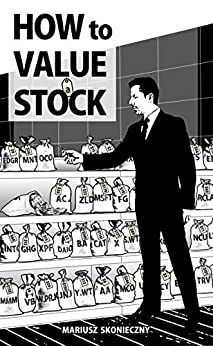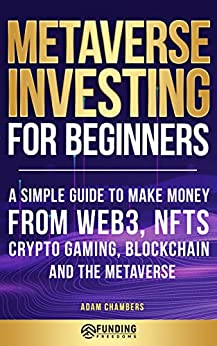موضوعات
آموزش و پرورش
ادبیات و زبان
پزشکی، دندانپزشکی و داروسازی
تاریخ و جغرافیا
داستان و رمان
دیگر
دین و فلسفه
روانشناسی
ریاضیات و آمار
سلامتی، تناسب اندام و رژیم غذایی
شیمی و پلیمر
علوم اجتماعی و حقوق
علوم زیستی و بیوتکنولوژی
فیزیک و نجوم
کامپیوتر و اینترنت
کتابهای کودکان و داستان
کسب و کار و اقتصاد
کشاورزی و دامپزشکی و غذا
معماری
مهندسی و فناوری
هنر و تئاتر
محصولات
Millionaire Teacher: The Nine Rules of Wealth You Should Have Learned in School - Original PDF
نویسندگان: خلاصه: The incredible story of how a schoolteacher built a million-dollar portfolio, and how you can too Most people wouldn't expect a schoolteacher to amass a million-dollar investment account. But Andrew Hallam did so, long before the typical retirement age. And now, with Millionaire Teacher, he wants to show you how to follow in his footsteps. With lively humor and the simple clarity you'd expect from a gifted educator, Hallam demonstrates how average people can build wealth in the stock market by shunning the investment products peddled by most financial advisors and avoiding the get-rich-quicker products concocted by an ever widening, self-serving industry.Using low cost index funds, coupled with a philosophy in line with the one that made Warren Buffett a multi-billionaire, Hallam guides readers to understand how the stock and bond markets really work, arming you with a psychological advantage when markets fall.Shows why young investors should hope for stock market crashes if they want to get richExplains how you can spend just 60 minutes a year on your investments, never open a financial paper, avoid investment news, and still leave most professional investors in the dustPromotes a unique new investment methodology that combines low cost index funds and a Warren Buffett-esque investment philosophyMillionaire Teacher explains how anyone can learn the ABCs of personal finance and strengthen their financial position.Lessons from the Legends of Wall Street : How Warren Buffett, Benjamin Graham, Phil Fisher, T. Rowe Price, and John Templeton Can Help You Grow Rich - Original PDF
نویسندگان: خلاصه: For the first time, investors will discover how to apply the three vital investment steps for todays markets along with time-tested strategies for acquiring wealth and keeping it. Nikki Ross profiles five legends, revealing how they gather and evaluate information and make investment decisions. Each chapter provides vital strategies for creating a sound investment plan. *WARREN BUFFETT: the super-combination investor shares insights about how to profit from annual reports and what to look for in stock research reports. *PHIL FISHER: the investigative growth investor tells how to pick stocks with tremendous profit potential by evaluating management, products, and policies of companies. *BENJAMIN GRAHAM: the value numbers investor provides important financial numbers and ratios to evaluate companies. Grahams followers give expanded criteria for 21st century value investing. *T. ROWE PRICE: the visionary growth investor discusses how to evaluate the life stage of a company, warning signals of slowing growth, and trends affecting stocks, updated by disciples. *JOHN MARKS TEMPLETON: the spiritual global investor, and one of the first money managers to invest internationally, gives 16 timeless investment rules and strategies for global investing in todays volatile markets.Even Buffett Isn't Perfect: What You Can--and Can't--Learn from the World's Greatest Investor - Original PDF
نویسندگان: خلاصه: Warren Buffett is the most successful investor of all time. His ability to consistently find undervalued companies has made him one of the world's richest men. Yet while his track record is hard to argue with, the Buffett way isn't the only way, nor is it always the best way, to invest. Even Buffett Isn't Perfect dispels many myths about Buffett and his ''solid as a rock'' style. It shows readers how to learn from the master's best moves while avoiding strategies that don't apply to small investors -- and avoiding Buffett's mistakes, such as sometimes riding his winners too long.Time is Money: The Power of Non-Directional Options Trading - Original PDF
نویسندگان: خلاصه: The new book, Time Is Money, comes from Kerry Given, the author of No Hype Options Trading, and he discusses the concept of non-directional trading. If you have some experience with options trading, you have probably heard the term, delta neutral trading. This is one of the buzzword phrases that has been used in marketing options trading education, trading alert services, and describing the strategies of hedge funds. Delta neutral does sound exotic - is this the trading secret I have been searching for? But we will see clearly in this book that there is no "secret" to options trading. Non-directional trading is a lesser known term and may be considered a subset of delta neutral trading. This book does an excellent job of distinguishing delta neutral trading from non-directional trading. These are not synonyms. The trader may use a delta neutral strategy because he is predicting a sideways price pattern or price movement within a modest sized channel. The delta neutral trade is just one choice among several options strategies. If the trader is bullish, he selects a bullish trade; if he is bearish, he selects a bearish trade. And if his prediction is for a sideways price movement, he selects a delta neutral trade. This trader is using a delta neutral trading strategy as a directional trade; it is based on the trader's prediction for the future price movement of the underlying stock or market index. The directional trader has a specific interest with particular knowledge about an individual stock or index and a prediction for its future value. Dr. Given distinguishes non-directional trading from delta neutral trading in one critically important way. If one is trading non-directionally, he develops a series of rules for entry, exit and adjustment of a delta neutral trading strategy and then enters and manages the position dictated by those rules month after month. He has made no prediction of the future; he just manages the position each day based on the market's price move that day. The trader is no longer predicting the market's next move tomorrow; the trader is reacting to what the market gives him today. The non-directional trader tries his best not to predict where the market is going tomorrow. Instead, he focuses on where the market is today and the actions his rules dictate. He follows the rules. This may seem like a fine distinction in semantics, but give Time Is Money a try. Focus on what the market is doing today and what your rules dictate. Throw away your crystal ball. About the Author - Kerry W. Given, Ph.D., is the founder of Parkwood Capital, LLC, a business that consists of stock and options coaching, a weekly newsletter, and two trading advisory services. Dr. Given is a co-founder of G&L Capital Management, LLC and manages the Theta Income Fund. Kerry speaks frequently at trading conferences and on behalf of several option brokerage firms. Kerry is the author of No Hype Options Trading, published by John Wiley and Sons. Dr. Given earned his B.S. from the University of Florida and his Ph.D. from the University of Minnesota.Trading Fixed Income and FX in Emerging Markets: A Practitioner’s Guide - Original PDF
نویسندگان: خلاصه: Emerging fixed income markets are both large and fast growing. China, currently the second largest economy in the world, is predicted to overtake the United States by 2030. Chinese fixed income markets are worth more than $11 trillion USD and are being added to global fixed income indices starting in 2019. Access for foreigners to the Indian fixed income market, valued at almost 1trn USD, is also becoming easier – a trend repeated in emerging markets around the world. The move to include large Emerging Market (EM) fixed income markets into non-EM benchmarks requires non-EM specialists to understand EM fixed income. Trading Fixed Income in Emerging Markets examines the principle drivers for EM fixed income investing. This timely guide suggests a more systematic approach to EM fixed income trading with a focus on practical trading rules on how to generate alpha, assisting EM practitioners to limit market-share losses to passive investment vehicles. The definitive text on trading EM fixed income, this book is heavily data-driven – every trading rule is thoroughly back-tested over the last 10+ years. Case studies help readers identify and benefit from market regularities, while discussions of the business cycle and typical EM events inform and optimise trading strategies. Topics include portfolio construction, how to apply ESG principles to EM and the future of EM investing in the realm of Big Data and machine learning. Written by practitioners for practitioners, this book: Provides effective, immediately-accessible tools Covers all three fixed income asset classes: EMFX, EM local rates and EM credit Thoroughly analyses the impact of the global macro cycle on EM investing Examines the influence of the financial rise of China and its fixed income markets Includes case studies of trades that illustrate how markets typically behave in certain situations The first book of its kind, Trading Fixed Income in Emerging Markets: A Practitioner’s Guide is an indispensable resource for EM fund managers, analysts and strategists, sell-side professionals in EM and non-EM specialists considering activity in emerging markets.The Buffett Essays - PDF
نویسندگان: خلاصه: Among the landmark occasions in the legendary history of Berkshire Hathaway and its iconic co-leaders, Warren Buffett and Charlie Munger, was a 1996 symposium held in New York at Cardozo Law School. The focus of the symposium was Warren's letters to Berkshire shareholders. The format was a series of panels with two dozen different experts dissecting all the ideas in the letters, about corporate governance, takeovers, investing, and accounting. Intellectual sparks illuminated the two-day affair, which drew unusual press interest for an academic convocation.Fooled By Randomness - PDF
نویسندگان: خلاصه: This is my book summary of Fooled by Randomness by Nassim Nicholas Taleb. My notes are informal and often contain quotes from the book as well as my own thoughts. This summary also includes key lessons and important passages from the book. According to Taleb, the book's most popular chapter was Chapter 11, the one in which he compressed all the literature on the topic of miscalculating probability. Important point: “it's more random than we think, not it is all random.” Chance favors preparedness, but it is not caused by preparedness (same for hard work, skills, etc.) “This business of journalism is just about entertainment, particularly when it comes to radio and television.” As much as we want to “keep it simple, stupid” … It is precisely the simplification of issues that are actually very complex, which can be dangerous. “Things that happen with little help from luck are more resistant to randomness.” “Mild success can be explainable by skills and labor. Wild success is attributable to variance.” One common theory for why people pursue leadership is because of “social emotions” which cause others to be influenced by a person due to small, almost imperceptible physical signals like charisma, gestures, and gait. This has also been shown via evolutionary psychology: when you perform well in life, you get all “puffed up” in the way you carry yourself, the bounce in your step, etc. From an evolution standpoint this is great because it becomes easier to spot the most successful / desirable mate. The concept of alternative histories is particularly interesting. If you were to relive a set of events 1000 times, what would the range of outcomes be? If there is very little variance in your alternative histories (i.e. You chose to become a dentist and you will probably make more or less the same amount of money and live a similar lifestyle all 1000 times), then you are in a relatively non- random situation. Meanwhile, if there is a very wide range of normal results when considering 1,000 variations (entrepreneurs, traders, etc.), then it is a very random situation. The quality of a choice cannot be judged just by the result. (I first learned this in baseball. Just because a pitch you call or play you call doesn't work out doesn't make it a poor choice. It could have been the right call, but bad luck. Or vice versa.) “Certainty is something that is likely to take place across the highest number of different alternative histories. Uncertainty concerns events that should take place in the lowest number of them.” You should think carefully about getting more insurance / shielding yourself from events that — although unlikely — could be catastrophic. You essentially want to insulate yourself from terrible random accidents. We have a tendency to see risks against specific things as more likely than general risks (dying in a terrorist attack while traveling vs. dying on your next trip, even though the second includes the first). We seem to overvalue the things that trigger an emotional response and undervalue the things that aren't as emotional. We are so mentally wired to overvalue the sensational stories that you can “realize informational gains by dispensing with the news.” Fascinating famous Swiss study of the amnesia patient who couldn't remember doctor's name but did remember him pricking her hand with a pin. “Every man believes that he is quite different.” It's better to value old, distilled thoughts than “new thinking” because for an idea to last so long it must be good. That is, old ideas have had to stand the test of time. New ideas have not. Some new ideas will end up lasting, but most will not. The ratio of undistilled information to distilled is rising. Let's call information that has never had to prove its truth more than once or twice, undistilled. And information that has been filtered through many years, counter arguments, and situations is distilled. You want more distilled information (concepts that stand the test of time and rigorous analysis) and less undistilled information (the news, reactionary opinions, and “cutting edge” research). There is nothing wrong with losing. The problem is losing more than you plan to lose. You need clear rules that limit your downside. (“If any investment loses one million dollars then our firm sells immediately.”) Much of what is randomness is timing. The best strategy for a given time period is often not the best strategy overall. In any given cycle, certain places will be dangerous, certain trading strategies will be fruitful, etc. If you find yourself doing something extraordinarily well in a random situation, then keep doing what's working but limit your downside. There is nothing wrong with benefitting from randomness so long as you protect yourself from negative random events. Randomness means there are some strategies that work well for any given cycle (an extreme fad diet), but these cycles are often short to medium term successes. More importantly, the strategies that work for a given cycle in the short term may not be the best for long run. They are sub optimal strategies winning over a randomly beneficial short term cycle. The same can said for setting huge goals, following a fad diet, chasing an extreme training protocol, and so on. Unsustainable and suboptimal for the long term. In this way, evolutionary traits that are undesirable can survive for a period of time in any given population. That is, suboptimal strategies and traits can seem desirable in the short run even though they will be resoundingly defeated in the long run. Important point: you can never affirm a statement, merely confirm its rejection. There is a big difference between “this has never happened” and “this will ever happen.” You can say the first, but never truly confirm the second. It just takes one counter example to prove all previous observations wrong. We never know things for sure, only with varying degrees of certainty. There are only two types of ideas. Those that have been proven wrong and those which have yet to be proved wrong. (Feynman said something similar.) Strive to become a man of leisure who can afford to sit with ideas, think properly about them, and gradually provide something of value. Science is speculation. This is important to remember. Scientists are simply creating well-formed and well-educated conjectures about the world. But they are still conjectures that can be proved incorrect by one random event. It's a difficult standard to demand that you can actually implement ideas and not merely share them (there have been many brilliant philosophers and scientists who have had great ideas they didn't personally use), but is an idea really that great if you can stick to it? Obviously, everyone has different skills and circumstances, so maybe someone can use your idea even if you can't. But generally speaking, I think you should be able to live out the ideas you share. Pascal: “the optimal strategy for humans is to believe in the existence of God. For, if God exists, then the believer will be rewarded. If God does not exist, the believer will have nothing to lose.” My first thought: “yes, but what if you believe in the ‘wrong' God?” Should you play a numbers game and believe in the God most people believe in? Or, can we safely assume that of the infinite number of possible Gods humans could have designed it is unlikely that any of the ones we worship are actually the God? So, just believe that a higher power exists? Whew. Tough call here. Social treadmill effect: you get rich, move to a better neighborhood, surround yourself with more successful people, and feel poor again. “Remember that nobody accepts randomness in his own success, only his failure.” Skewness and expectations: you can't just look at the odds of something happening, but also the payoff you receive if it works (and the cost of it failing). A bet on something very unlikely can be smart if the payoff is large and you have rules to limit the many small losses that are likely. Minor stalemates in life can often be solved by choosing randomly. In many cases it doesn't really matter so long as you choose something and move forward. We follow rules not because they are the best options, but because they make things fast and easy. Humans are inherently flawed. The cognitive biases that we have are simply a result of how our brains work. Sometimes these biases help us rather than hurt us. But they are always a result of how we are built. That makes them particularly difficult to avoid. We seem to focus too much on “local” changes, not global ones. That is, we care too much about the latest change rather than the overall trend. “Wealth does not make people happy, but positive increases in wealth may.” We do not think, but use heuristics to make decisions. Emotions are “lubricants of reason.” We actually need to feel things to make decisions. Emotions give us energy and they are actually critical to life in the day-to-day world. In other words, the goal here is not to become a robot who can analyze everything with perfect logic. Even if you know about randomness and cognitive biases, you are still just as likely to fall victim to them. How to overcome these biases? We need tricks. We are just animals and we need to re-structure our environment to control our emotions in a smart way. “Most of us know pretty much how we should behave. It is the execution that is the problem, not the absence of knowledge.” “I try to remind my group each week that we are all idiots and know nothing, but we have the good fortune of knowing it.” Do not blame others for your failures. Even if they are at fault. The only aspect of your life that fortune does not have control over is your behavior. Repetitiveness is key for determining if you are seeing skill or randomness at play. Can't repeat it? Not skillful. “We favor the visible, the embedded, the personal, the narrated, and the tangible. We scorn the abstract. Everything good — aesthetics, ethics — and wrong — fooled by randomness — with us seems to flow from it.”Emotional Intelligence in Business: EQ: The Essential Ingredient to Survive and Thrive as a Modern Workplace Leader - Epub + Converted Pdf
نویسندگان: خلاصه: Emotional Intelligence in Business: EQ: The Essential Ingredient to Survive and Thrive as a Modern Workplace Leader (For Business Book 2) by R. StevensMetaverse Investing for Beginners: A Simple Guide to Make Money From Web3, NFTs, Crypto Gaming, Blockchain, and the Metaverse - Epub + Converted PDF
نویسندگان: خلاصه: Metaverse Investing for Beginners: A Simple Guide to Make Money From Web3, NFTs, Crypto Gaming, Blockchain, and the Metaverse by Adam Chambers (Author), Funding Freedoms (Author)آیا کتاب مورد نظر هنوز بر روی سایت قرار نگرفته است؟ جای نگرانی نیست! کافی است بر روی گزینه سفارش کتاب کلیک کرده و درخواست خود را ثبت کنید. در کمتر از چند ساعت کتاب شما را آماده خواهیم کرد.
